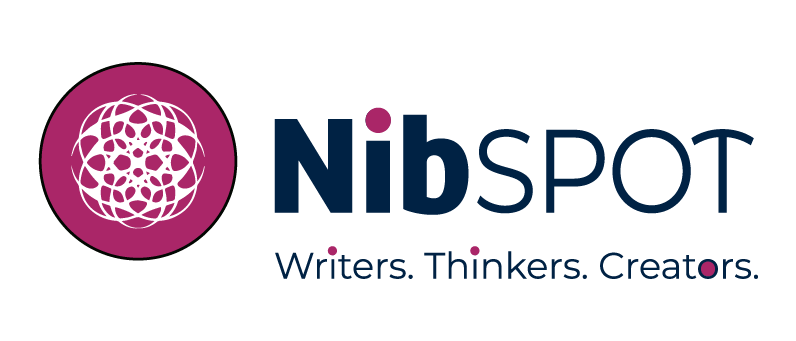In a landmark announcement, Google has unveiled its latest breakthrough in quantum computing, signifying a leap forward in computational science. The introduction of Google’s innovative quantum technology marks a pivotal moment in the tech industry, promising to redefine how we approach complex problem-solving and data analysis.
This cutting-edge quantum chip is not just another incremental update but a radical advancement that is expected to revolutionize computing capabilities. By harnessing the unique properties of quantum mechanics, Google’s quantum chip could potentially solve problems that are currently intractable for classical computers.
Key Takeaways
- Google introduces a breakthrough in quantum computing with its latest chip.
- The quantum chip signifies a major leap forward in computational science.
- Promises to revolutionize problem-solving and data analysis.
- Utilizes the principles of quantum mechanics for enhanced processing power.
- Potential to solve traditionally intractable problems for classical computers.
Introduction to Google’s Quantum Computing Chip
Google has embarked on an extraordinary journey to harness the power of quantum computing, culminating in the development of a revolutionary quantum computing chip. This advancement exemplifies Google’s unparalleled commitment and serves as an introduction to quantum advantage that is set to redefine computational possibilities.
The intricate fundamentals of quantum mechanics underlie this innovation, distinguishing it fundamentally from classical computing systems. While traditional computers utilize binary systems (0s and 1s) stored in bits, quantum computers employ qubits, which can represent and store multiple states simultaneously through superposition. Additionally, the principle of entanglement further strengthens the computational capabilities, exponentially increasing the processing power.
This breakthrough work by Google signifies a pivotal leap in quantum technology. Highlighting a primer on Google’s quantum innovation, it’s vital to understand why this particular chip is garnering significant attention. Its potential impacts are far-reaching, promising to address complex problems across various industries faster than conventional systems could ever manage.
The launch of this groundbreaking chip symbolizes the stepping stone towards a new era of computational supremacy, harboring the potential to bring forth solutions that are currently beyond the reach of classical computing paradigms.
The technology at the heart of this chip represents a marriage of deep theoretical principles and cutting-edge practical implementations. Through Google’s continuous research and development, this chip not only sets new benchmarks but also positions the tech giant at the forefront of the quantum computing revolution.
- Google’s relentless journey towards quantum computing excellence.
- Core principles differentiating quantum technology from classical systems.
- The groundbreaking implications of this quantum chip for future innovations.
A concerted effort to integrate and develop the intrinsic aspects of quantum mechanics has propelled this chip into the spotlight, necessitating a comprehensive introduction to quantum advantage for those eager to understand its transformative capacity. As we delve deeper into this topic, it becomes evident that Google’s initiatives stand as a beacon of progress in quantum computing.
Quantum Supremacy Redefined
Google’s quantum computing chip signifies a massive leap forward in technology. It marks a new era where quantum supremacy is no longer just a theoretical concept but a substantial reality.
What is Quantum Supremacy?
Defining quantum supremacy involves surpassing the most advanced classical computers in executing tasks. Historically, certain computations were considered practically impossible for classical machines due to time and resource constraints. However, quantum computers leverage quantum bits (qubits) to perform these calculations at an astonishing rate, redefining computational power and efficiency.
How Google’s Chip Achieves Quantum Supremacy
Google’s quantum chip showcases a remarkable breakthrough in computational benchmarks. Unlike classical bits, which can only be in a state of 0 or 1, qubits can exist in multiple states simultaneously. This characteristic, combined with quantum entanglement, allows the chip to execute complex computations exponentially faster than conventional computers. By meticulously orchestrating the behavior of qubits, Google’s chip achieves computational feats previously deemed unattainable.

Potential Applications in Parallel Computing
The quantum chip introduces unparalleled opportunities for parallel processing applications. Industries ranging from cryptography to pharmaceutical research could harness this technology to simulate molecular structures or encrypt data in ways classical machines never could. Moreover, the chip’s ability to perform incredibly complex tasks in parallel opens new frontiers in machine learning, financial modeling, and beyond.
| Attribute | Classical Computers | Quantum Computers |
|---|---|---|
| Processing Speed | Limited by binary states | Enhanced by qubit superposition |
| Efficiency | Task-specific algorithms | Simultaneous computations |
| Applications | General purpose | Parallel processing in complex scenarios |
Google Unveils ‘Mindboggling’ Quantum Computing Chip
Google’s latest breakthrough in the realm of quantum computing has left the tech community astounded. Their newly launched quantum computing chip exemplifies the very essence of state-of-the-art quantum design, promising to redefine the boundaries of modern technology.
Innovative Design and Architecture
At the core of Google’s revolutionary chip is an architectural marvel in chips that integrates advanced quantum mechanics principles with cutting-edge semiconductor technology. The chip is not only designed to perform complex computations at unprecedented speeds but also to operate with enhanced energy efficiency. This landmark development in state-of-the-art quantum design sets a new standard for what is achievable in the field of quantum computing.
Impacts on Artificial Intelligence
The interplay between quantum computing and artificial intelligence presents exciting opportunities for the tech industry. Google’s quantum chip is poised to propel AI’s new frontier with quantum computing, enabling AI systems to process vast amounts of data more efficiently and make more accurate predictions. This synergy between advanced quantum technology and AI will undoubtedly accelerate developments in areas such as machine learning, data analysis, and complex problem-solving techniques.
Technological Breakthroughs and Computational Power
The evolution of computational technology has been marked by several technological innovation milestones that continue to redefine the boundaries of what is possible. Google’s quantum chip stands at the forefront of this revolution, exemplifying the surging computational prowess ushering a new era of processing capabilities.
Exponential Growth in Processing Capabilities
The advent of Google’s quantum chip marks an unprecedented leap in technological innovation milestones. By harnessing quantum mechanics, this breakthrough chip offers processing speeds and efficiencies far beyond those of classical computers. This quantum leap in technology not only amplifies our current capabilities but also positions us to address complex problems previously deemed unsolvable.
Supercomputers of the Future
Envisioning the next-generation supercomputers becomes increasingly tangible with the implementation of quantum computing. As we witness the exponential growth in processing capabilities, it is evident that future supercomputers will be fundamentally transformed. These advancements facilitate not only an array of new applications but also vast improvements in existing ones, encompassing everything from climate modeling to drug discovery and beyond.
The table below highlights the significant contrasts and potential of current supercomputers compared to future quantum-enabled supercomputers.
| Current Supercomputers | Future Quantum-enabled Supercomputers |
|---|---|
| Based on classical computing principles | Utilize quantum mechanics for unparalleled speed and efficiency |
| Limited by Moore’s Law | Exponential growth in computational abilities |
| High energy consumption | Potential for lower energy requirements when optimized |
| Challenges in solving complex problems | Capable of solving previously unsolvable problems |
Reaction from the Tech Community
The tech industry’s response to Google’s groundbreaking quantum chip has been a medley of excitement, skepticism, and cautious optimism. From seasoned experts to leading tech companies, the announcement has sparked significant discussions across the global technological community perspective.
Expert insights on quantum leap paint a spectrum of reactions, with many applauding the potential of the technology to revolutionize industries. For instance, Sundar Pichai, CEO of Google’s parent company Alphabet, expressed his enthusiasm, stating that the quantum chip marks a “major milestone in computational technology.” Similarly, Microsoft’s CTO, Kevin Scott, highlighted the transformative possibilities in fields such as cryptography and drug discovery. However, Scott also emphasized the need for continued research and collaboration.
An interesting analysis comes from IBM, where Dario Gil, Director of IBM Research, acknowledged the quantum leap represented by Google’s chip but stressed that the term “quantum supremacy” might be misleading. He advocated for a more measured approach, pointing out that practical applications are still in their infancy.
“Google’s quantum chip is a remarkable achievement, but we must temper our expectations with the recognition that we are still at the early stages of quantum computing,” remarked Dario Gil.
The global technological community perspective is further enriched by startups like Rigetti Computing and academic institutions, all of which see vast potential in advancing their research capabilities using quantum technology. The collaborative ethos in the tech industry suggests that while Google’s innovation is a colossal step, the future of quantum computing will be a collective journey.
Furthermore, venture capitalists and investors have shown considerable interest, with many predicting substantial economic impacts. The investment landscape appears poised for a boom, driven by the anticipation of new markets and transformative technological advancements.
| Notable Figures | Key Reactions | Industry Impact |
|---|---|---|
| Sundar Pichai | “Major milestone in computational technology” | Potential to revolutionize industries |
| Kevin Scott | Highlighted transformative possibilities in cryptography and drug discovery | Emphasized need for continued research |
| Dario Gil | Called for a measured approach to “quantum supremacy” | Stressed early stages of practical applications |
In conclusion, while the tech industry’s response is predominantly positive, it is tempered by a recognition of the nascent stage of quantum computing technologies. With both admiration for the quantum leap and calls for a grounded perspective, the discourse underscores a shared optimism and cautious anticipation within the global technological community perspective.
Conclusion
As we bring this illuminating journey through Google’s groundbreaking quantum chip to a close, it is evident that we are on the precipice of a significant leap in computational capabilities. The unveiling of this ‘game-changing’ quantum chip marks a pivotal moment in technological history. By achieving and redefining quantum supremacy, Google’s innovative design and architecture have set a new standard for computational power and efficiency.
Throughout this article, we have explored the tremendous advances in processing capabilities, highlighted the seismic shifts in artificial intelligence, and examined reactions from the tech community. These insights collectively underscore the transformative potential that quantum computing holds. Indeed, summing up Google’s quantum journey, the breakthrough signifies not just an incremental improvement but a foundation for a true computational revolution.
Looking ahead, the future possibilities with quantum technology are vast and awe-inspiring. This revolutionary technology is poised to unlock new horizons across various sectors, including cybersecurity, pharmaceuticals, and finance. As we ponder the closing thoughts on a computational revolution, it becomes clear that Google’s quantum chip is not just a marvel of engineering but a harbinger of what the future may hold for our interconnected world.

